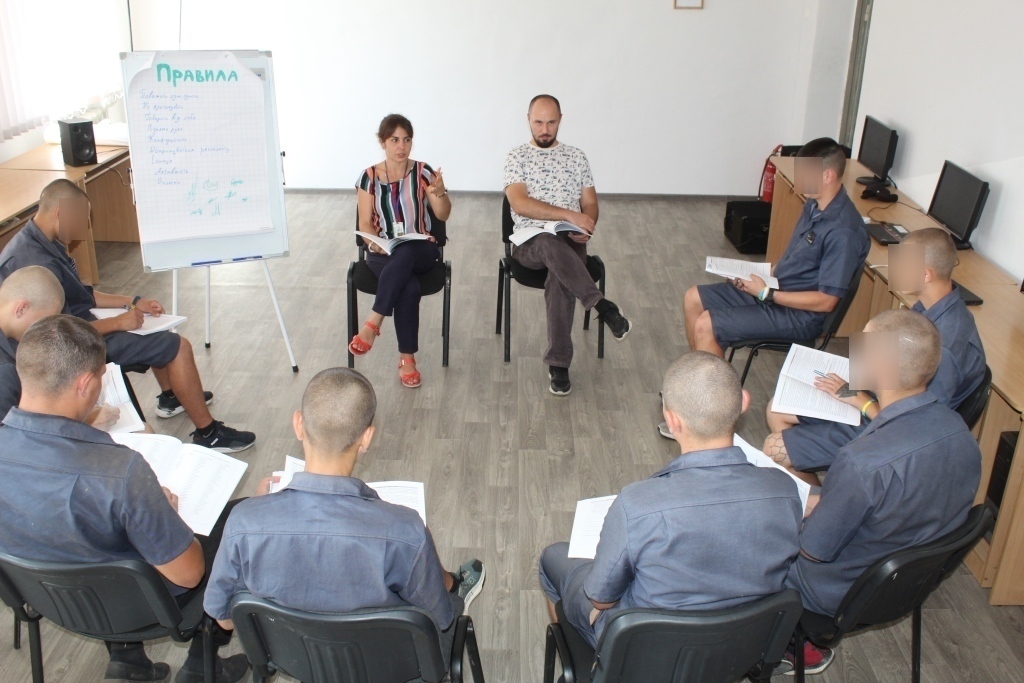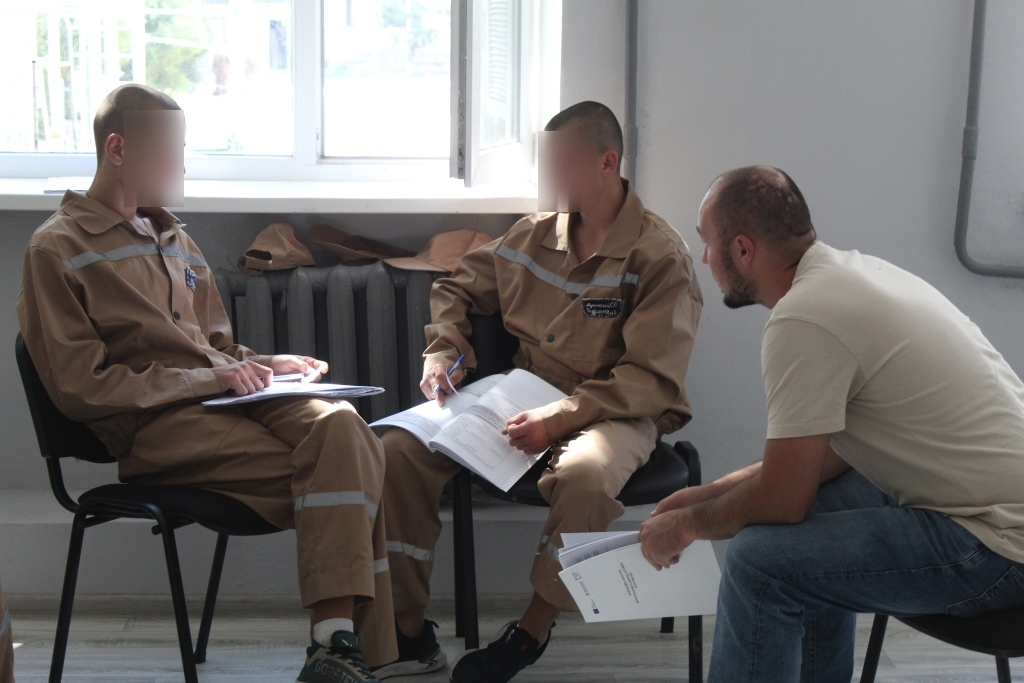Assertive Communication Skills Training Correctional Programme is being Piloted in Seven Detention Facilities: Initial Results

Seven Ukrainian detention facilities are piloting the Assertive Communication Skills Training correctional programme. It is being implemented in Manevytska (No. 42), Synelnykivska (No. 94), Odeska (No. 14), Litynska (No. 123), Kaharlytska (No. 115), Konotopska (No. 130) correctional detention facilities and in Kremenchutska young offender facility and is covering 56 convicts.
The first interim results have already been summarised. The participants’ pro-activity was rated at 4.5 points out of possible 5 (70% involved), motivation at 4.5 points (73.4%), and the clarity of materials at 4.5 points (73.3%). The convicts note that the classes take place in a positive and supportive atmosphere, encouraging them to reflect on their lives and what their lives may look like in the future. According to them, the knowledge they have gained ‘sows the seeds of reflection’ and helps them to see other ways of behaving that are different from the usual conflictual or manipulative models.
“The correctional programme is based on scientifically proven methods – cognitive behavioural therapy, mindfulness practices, acceptance and commitment therapy. It aims to develop vital skills that will help convicts both during their sentence and after their release – in restoring relationships, adapting to the community, and finding work. Interim results of the pilot programme show high level of pro-activity and motivation among participants, which means that the programme is working well and bringing in practical tools for positive change,” said Olena Kochura, Key Expert on Reforming the Penitentiary System and Probation at EU Project Pravo-Justice.

Training within the pilot programme is delivered in the form of live dialogue between convicts and programme facilitators: convicts share their personal experiences, analyse life situations, learn methods of self-observation, and master assertive communication techniques delivered by the facilitators. This approach promotes responsibility for one’s own behaviour, reduces conflicts, and improves the psychological climate in prisons.
The administrations of the institutions where the programme is being implemented emphasise the importance of such work.
“We see that participants becoming more open, learning to express their emotions without aggression or manipulation, and beginning to communicate better with each other. Not only does this contribute to their personal development, but also creates a safer environment in the detention facilities. We expect the programme to provide convicts with effective tools for further resocialisation and reducing the risk of reoffending,” said Vitalii Hrytsutenko, psychologist at the Odessa correctional detention facility.
The Assertive Communication Skills programme is designed for both men and women, adults and minors, who have been sentenced to imprisonment. It is an important step in the formation of a modern penal system focused on true resocialisation and the return of individuals to a full life in society.
Once the pilot programme is completed, changes proposed during the testing will be made to the text of the manual for facilitators and the workbook for convicts. In December, the results of the pilot programme will be presented at a meeting of the working group on the development of correctional programmes. After that, the programme will be submitted to the Ministry of Justice to be approved in accordance with the relevant order, and it will become available at all penitentiary institutions.